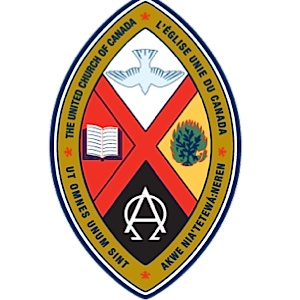Canada’s largest Protestant church targeted three Israeli companies with operations in Jewish settlements for economic sanctions and boycott.
Last week, the United Church of Canada’s governing General Council approved the start of a boycott campaign, encouraging “economic action” against Keter Plastic, SodaStream and Ahava.
The move is an outgrowth of the church’s decision last year to boycott products exported by settlements on the West Bank and in eastern Jerusalem. At the time, the church called the settlements the “principal obstacle to peace in the region.”
In the coming months, the church “will engage in dialogue with these companies regarding their involvement in the settlements and request that they cease all production in the settlements,” the church said. The failure to comply “will result in economic action against their products.”
The church also promises to contact Canadian retailers carrying products from the manufacturers “and request that these items no longer be sold in their stores.”
Depending on responses from the manufacturers and retailers, church adherents “will be invited to initiate economic actions to avoid identified products and to continue engagement with the companies and retailers.”
The United Church claims some 2 million followers.
In a statement, the Centre for Israel and Jewish Affairs (CIJA) pointed out that SodaStream employs “hundreds” of Palestinian workers.
The church’s position, “which claims to advance Palestinian aspirations by increasing the number of unemployed Palestinians, can only be described as intellectually dishonest,” CIJA said. “Its goal seems to be the self-satisfaction of the General Council rather than an improvement in the life of the average Palestinian.”
As in the past, CIJA responded by launching a “buycott” campaign to mobilize the Jewish community to support the three targeted companies “for the benefit of Israeli and Palestinian workers alike.”
Its May 29 call-to-action emplored Canadians to purchase products from the targeted Israeli companies.
"Spring is finally here! What better way to celebrate than by moisturizing with your favourite Ahava products or refreshing yourself with a SodaStream beverage?!," the campaign's e-flyer reads.
It also encouraged supporters to take photos of themselves holding their purchases and send the pictures in via social media site Pinterest. "Happy Shopping!" the buycott message concludes.
CIJA's Buycott Israel initiative was started in 2009 to encourage consumers to support Israeli-made products in response to boycott actions.
In 2009, hundreds of pro-Israel consumers converged on a mid-town Toronto LCBO outlet to counter a call to boycott Israeli wines. Within a few hours, the store had sold out of its stock of about 150 cases of Israeli wine.
In 2011, the pro-Israel campaign helped dispel rumours that The Bay had removed Ahava beauty products from its shelves as part of a boycott request from Canadian anti-Israel group Canadians for Justice and Peace in the Middle East (CJPME).
The Bay had in fact temporarily removed the products from its stores in order to make room for a rebranded Ahava line that it continues to sell.
Last year, the buycott campaign urged Canadians to shop at housewares retailer Bed, Bath & Beyond in response to a call to boycott Ahava cosmetics and SodaStream home carbonation products being sold at the U.S.-based chain.
The CJN is following this story.
With files from Andy Levy-Ajzenkopf
